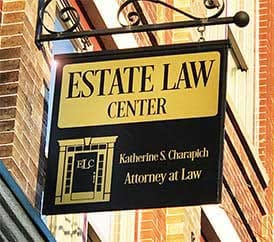The Key to Specific Bequests
By Attorney Katherine S. Breckenridge, Esq.
Published April 28, 2018 – Culpeper Times
Wills and Trusts : Estate Planning : Special Bequests : Virginia
Picture a major, metropolitan city with bright lights and people busily going about their lives. There are the smells of pizza – you know the kind, where one slice barely fits on the paper plate and if you don’t fold that plate just right the cheese begins to slide . . . There are the sounds of taxi horns, and people yelling greetings. There is a hum that never stops.
Without identifying the location, so as to provide some anonymity, a recent speaking engagement prompted a story that encompassed such a setting within a bustling city – where people live in close quarters, and there is a beauty that rises from the lives that become intertwined.
One could say, “it was one of those ‘aha’ moments,” when something in the course material comes alive for an attendee.
During the seminar, I had just transitioned from giving an overview of estate planning documents to examining the structure of a last will and testament, when a gentleman eagerly raised his hand. As soon as he began to speak, his accent captivated the twenty-or-so in attendance.
The gentleman said that as I was talking about specific bequests of tangible personal property, meaning the items that we can touch and which we may convey or bequeath to a particular person or entity, the discussion reminded him of a story in which he played a fairly major role.
The story involved this gentleman who lived in a building nestled within the city, and who had the privilege of witnessing the friendship that grew between neighbors in adjoining apartments – an older adult lady and a woman not yet entering such a season. One can imagine that the building may have been a high rise with many rent-controlled apartments, where perhaps the landlord remained a little scarce, and the neighbors were not just dependent upon one another, but truly enjoyed each other’s company.
As the story goes, the two ladies became very good friends – picture the shared cups of coffee, the quiet moments perhaps no longer so remote. Especially important, when there were adult children who never came to visit the older adult lady; not a note, not a call. Whether two, three, or more – the number is not important here. The poignancy is in the life lived without those to whom one gave life.
Time passed and the older adult lady became ill, and eventually she had no fight left; her departure was a graceful one. Unbeknownst to those who were her friends, the older adult lady had prepared to pass on her meager belongings with dignity.
This lovely lady, who towards the end of her life built memories on her own without the help of her children, made a specific bequest in her last will and testament – leaving a piece of furniture, and the contents therein, to the woman next door who had become her friend. Perhaps that piece of furniture was all she had to leave, those elements of the story we do not know.
What can be shared is that there was no devise or bequest to any of the children. And, when the nondescript piece of furniture was delivered to the neighbor, inside a drawer was a key with a note attached. The note instructed that the beneficiary give the key to the very gentleman who was in the audience of my seminar stating, “he’ll know what to do with it.”
Looking over the worn piece of furniture gave no indication of the magic within. As this gentleman got down on his knees, peered underneath, shined his small flashlight from corner-to-corner, there it was . . . a secret compartment, and the key was a perfect fit.
A thank you contained therein for a friendship when one may have been most needed – a compartment filled with gems that glittered, worth millions one said. True friendship is priceless – this story is about principle.
A simple specific bequest made in a Last Will and Testament may speak volumes where no voice previously stood. Plan ahead. Protect what is yours. Give thanks as appropriate. Write a beautiful verse.
